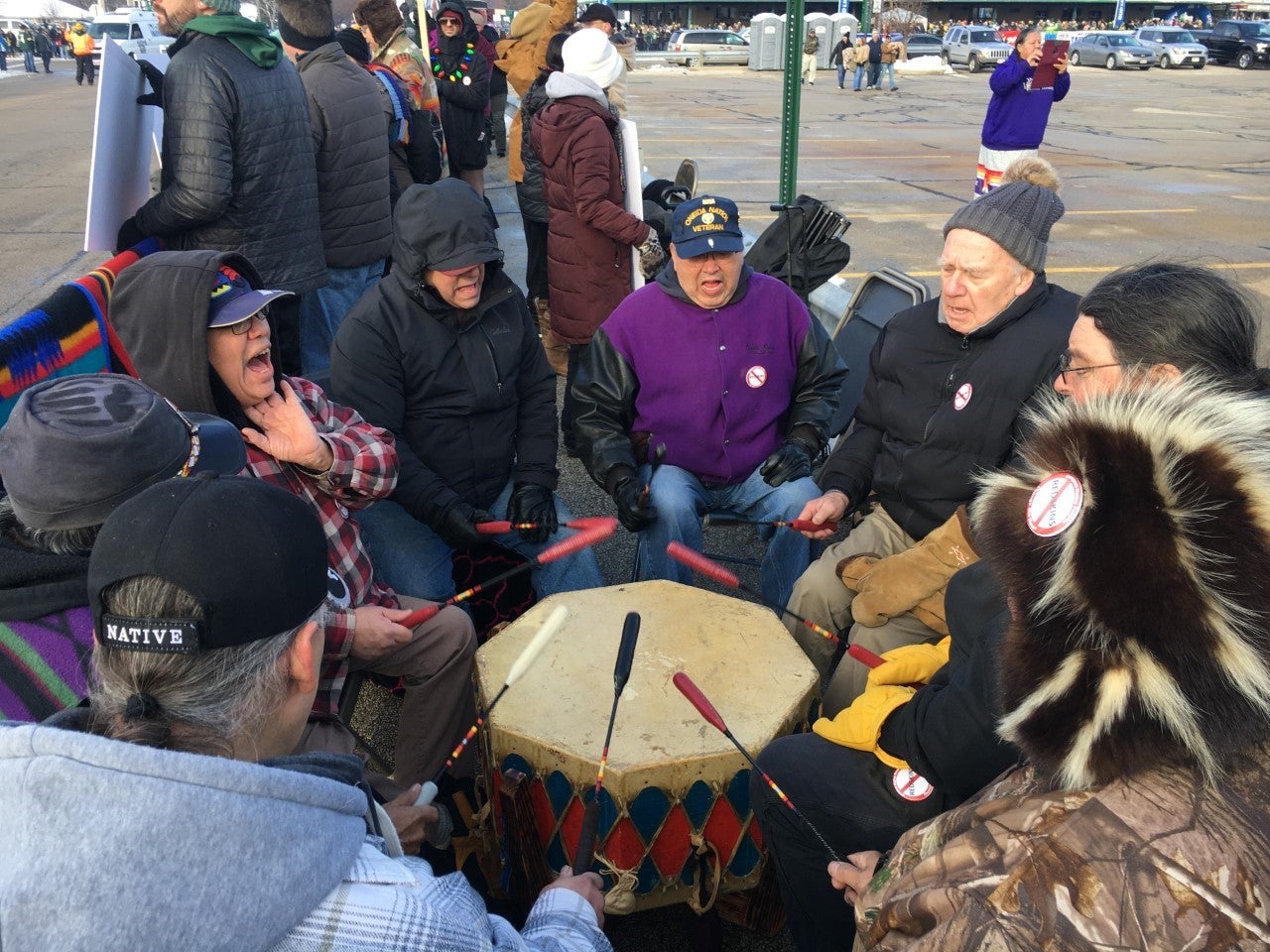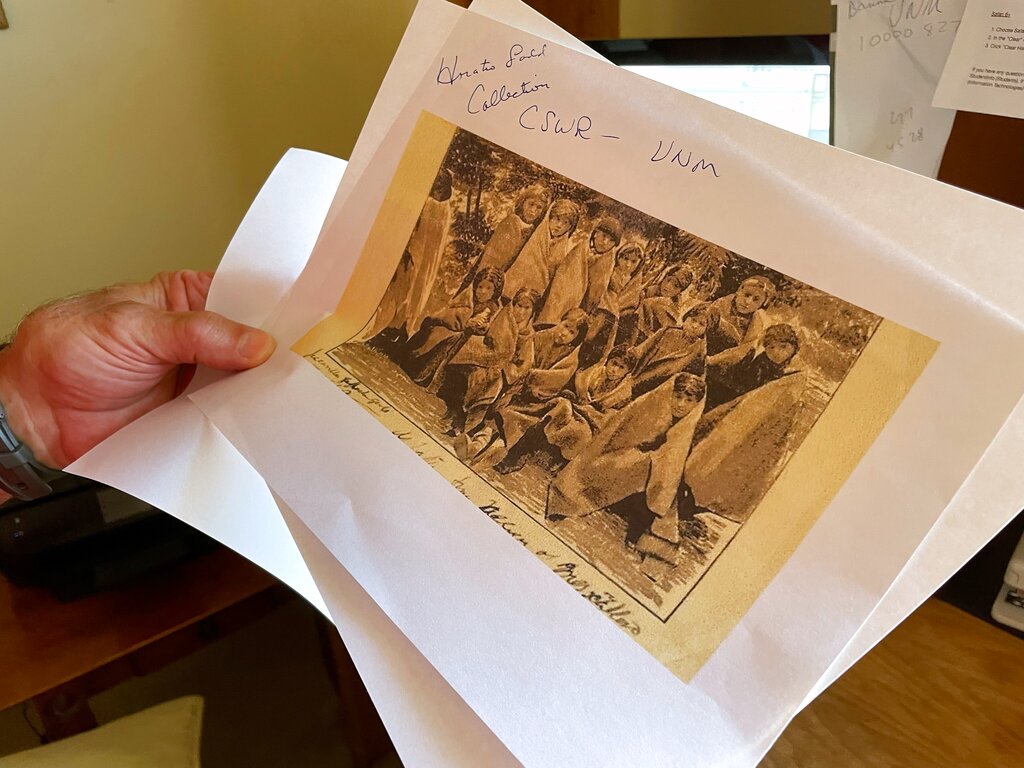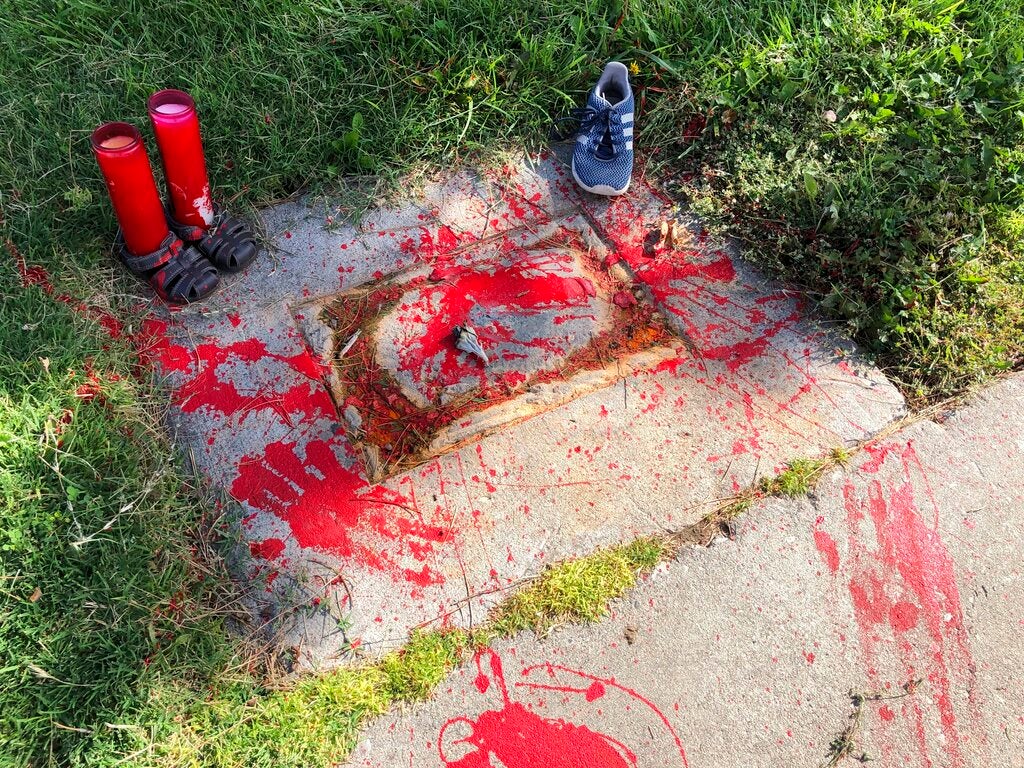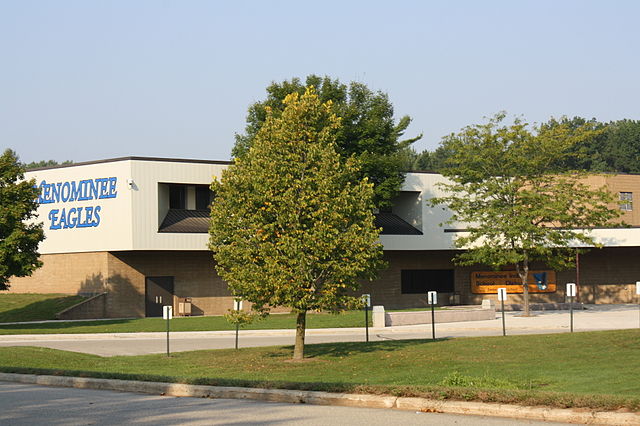A measure that would push Wisconsin school boards to retire all the state’s remaining Native American mascots will be revived by its author, Wausau School Board President Tricia Zunker.
Speaking on WPR’s “The Morning Show” Thursday, Zunker said she will reintroduce a resolution saying that Native American mascots, logos and nicknames undermine the educational experience of students at a Wausau School Board meeting this month. The resolution, which calls on the Wisconsin Association of School Boards to adopt the retirement of Native American mascots as a policy goal, was endorsed by 18 school boards across the state in 2019. When it went to a vote at the association’s annual meeting in January, the resolution failed by a statewide vote of 101 to 218.
But Zunker, a Ho Chunk Supreme Court justice who is running for Congress as a Democratic in the 7th Congressional District, said there is reason to believe public opinion has shifted on the issue in recent months, following a nationwide wave of protests against racial injustice. She said she’s heard from representatives in four new school districts in the past week that hope to take up the resolution.
News with a little more humanity
WPR’s “Wisconsin Today” newsletter keeps you connected to the state you love without feeling overwhelmed. No paywall. No agenda. No corporate filter.
“Human beings are not mascots, and it’s never good educational policy to stereotype against an entire race of people,” Zunker said. “And that’s what this comes down to. Even though I’m an indigenous woman and have my feelings about this as a Ho-Chunk woman, the bottom line is we have to talk about educational policy when we talk about these depictions.”
Zunker and other advocates cite a 2005 resolution of the American Psychological Association that recommended retiring all Native mascots. The association cited evidence that the mascots contribute to a hostile learning environment for Native students, as well as harm to non-Native students that come from “undermin(ing) the educational experiences of … those who have had little or no contact with indigenous peoples.” For example, depictions of Native people as “warriors” in the context of mascots and logos give students a stereotyped, misleading portrait of Native American cultural history and present reality.
There are 28 schools in Wisconsin that retain Native American team names or mascots, Zunker said. The Wisconsin Association of School Boards, a lobbying body, would not itself have the power to compel any district to make a change.
Opinion polling has shown a dramatic shift in attitudes toward the Black Lives Matter movement since the protests began in May. A month ago, the New York Times cited data showing that more than three-quarters of Americans supported the movement, and that opinion had shifted as much in the previous two weeks as it had over the previous two years.
That sea change in opinion on race and racism has led to the removal of Confederate monuments and symbols and the advancement of police reforms. This week, it led to the announcement from Washington’s NFL team that it would change its name from the racial slur for Native Americans that had been its moniker for more than 50 years.
Zunker called the Washington team’s decision an “overdue change.” And for advocates of retiring all Native mascots, it raises the question of whether it will speed local changes.
“Hopefully it’s a domino effect and we continue to have progress,” said Tehassi Hill, chairman of the Oneida Nation, at a Monday press conference in Green Bay.
Hill said Black Lives Matter protests had “put a spotlight on businesses and other entities that have long supported race-based mascots,” pushing them to change.
Zunker said changing those symbols, whether of professional football or baseball teams or local school districts, will have a positive effect on young people’s perceptions.
“We have to remember that our children are watching, listening and learning,” she said. “Reinforcing stereotypes is something that we need to work hard as a community to eliminate. This is one overdue change.”
Editor’s note: Megan Hart contributed reporting to this story.
Wisconsin Public Radio, © Copyright 2025, Board of Regents of the University of Wisconsin System and Wisconsin Educational Communications Board.






